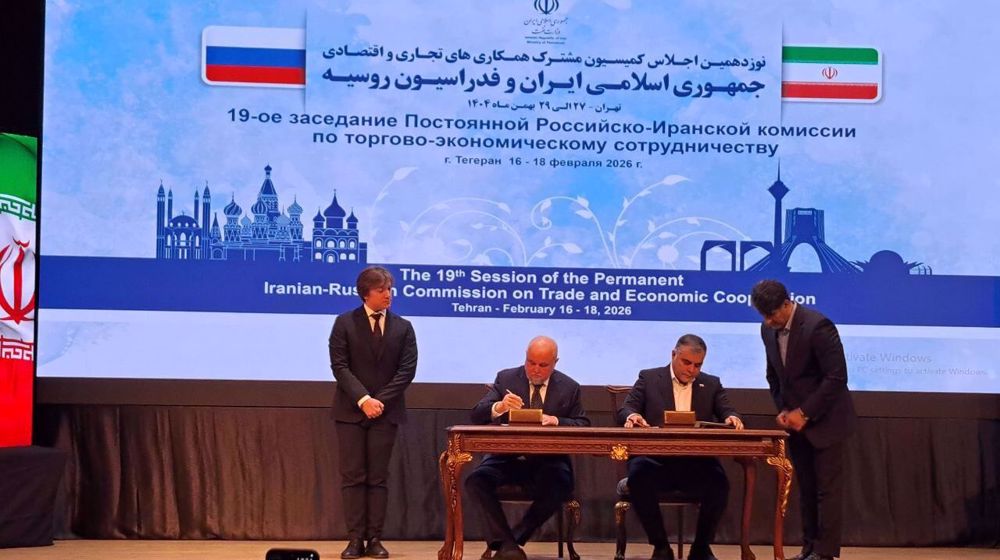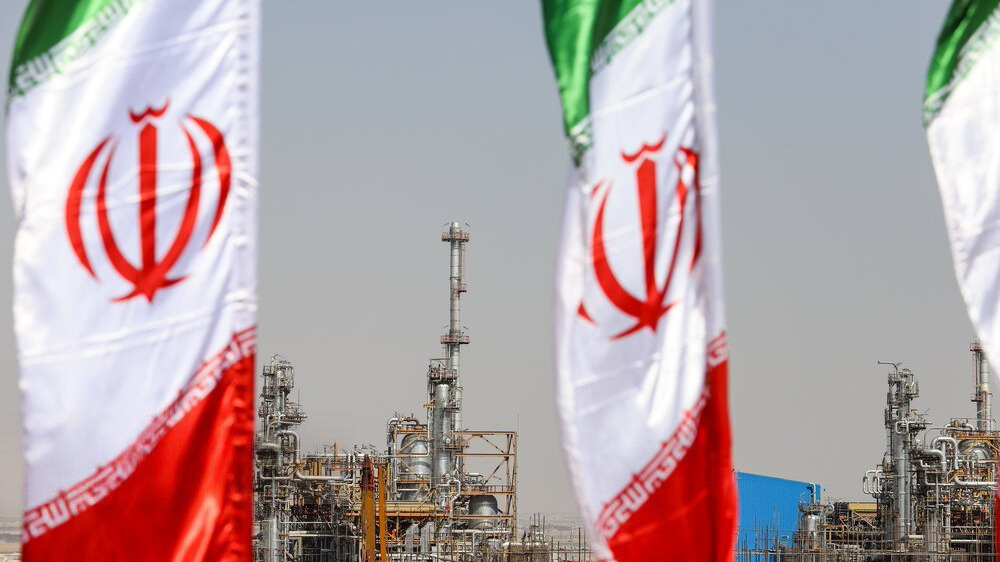US ‘deeply worried’ as China continues to buy Iran oil
Chinese companies continuing oil purchases from Iran despite US sanctions are seriously worrying the White House which is warning them to stop the trade, senior administration officials say.
Last month, the US announced sanctions on five Chinese nationals and six entities, including two Cosco Shipping Corporation subsidiaries, saying they had shipped Iranian crude oil in violation of the sanctions.
The coercive measures were similar to US sanctions imposed in July on energy company Zhuhai Zhenrong, one of China’s largest state-backed oil companies for transporting Iranian crude oil.
China has dismissed the sanctions, saying they amount to “bullying” and has defended its trade with Iran as legitimate and legal.
To ramp up pressure on Beijing, the US administration is now accusing Chinese shipping companies of turning off their transponders to conceal the location of their cargoes.
Chinese companies are allegedly refusing to provide ship tracking data to the agencies which pass them to the US government.
One such agency, Refinitiv Eikon, has said 14 COSCO Shipping Tanker (Dalian) vessels, about one-third of its fleet, stopped sending location data from their automatic identification system (AIS) after the US sanctions were announced last month.
COSCO Shipping, however, said none of its vessels had turned off their AIS controllers or stopped transmitting AIS signals, stressing that it “will continue to adhere to applicable laws and regulations in the conduct of its business operations”.
Two senior US administration officials, cited by Reuters on Wednesday, said the White House was warning Chinese shipping companies against turning off their ships' transponders.
"We've been messaging very heavily to the shipping companies, you don't want to do this, it's not worth it," Reuters quoted one of the unnamed officials as saying.
The US government seeks to squeeze Iran’s exports, especially its sales which President Donald Trump has pledged to drive to zero after tightening sanctions in May.
It has warned shipping companies, energy companies and port officials to shun trade in Iranian oil, or face sanctions.
One of the officials, quoted by Reuters, said the Trump administration believes that sanctions are on the verge of causing an economic depression in Iran, but Iranian officials say the economy is showing signs of recovery.
They say the country has weathered the worst of the storm from the US reimposition of sanctions which disrupted Iran’s foreign trade and boosted annual inflation following a drop in the Iranian currency.
The International Monetary Fund (IMF) on Tuesday forecast Iran’s inflation at 35.7% this year. The market rate of the Iranian rial stood at around 115,000 against the dollar on Tuesday, up from the record low of 190,000 in October 2018.
Moreover, Iran has years of experience dealing with sanctions and is confident it can ride out the economic pain. Officials have said the country will continue to sell its oil no matter what.
The second official, speaking to Reuters Wednesday, said the US was “literally going ship by ship at this point because each ship is incredibly important" to Iran's economy. However, while the Trump administration is watching, it is not able to stop shipments.
For example, among Chinese companies Zhuhai Zhenrong has been under US sanctions since 2012 for supplying gasoline to Iran but it has continued trade because it has little overseas exposure.
Nevertheless, not all Iranian customers are standing their ground.
Preliminary data from Korea Customs Service released Tuesday showed South Korea did not import crude oil from Iran in September for a fifth month in a row.
South Korea, a top buyer of Iranian condensate, stopped importing oil from Tehran in May after the US government put an end to waivers on US sanctions against Iran that allowed oil buyers to buy Iranian oil.
South Korea’s crude oil imports from the United States more than doubled in September, making the US the Asian country’s No.3 crude oil supplier.
According to the customs data, US crude oil imports were 1.62 million tonnes in September, or 395,190 barrels per day (bpd), compared with 668,704 tonnes a year earlier.
The rise came even as data from November trade showed rates for shipping US oil to Asia had hit more than a three-year high amid American sanctions on China and Iran.
According to traders and ship brokers cited by Reuters early this month, the surge in freight costs has made US crude exports to Asia unprofitable, leaving exporters reluctant to book vessels at the higher rates.
The US has aggressively been pushing its oil on customers around the world after sanctioning Iran and Venezuela in what is seen by many observers as an energy war in the wider context of its trade war.
This is while many traditional oil buyers, including South Korea, are used to certain grades and their refineries are configured to process the likes of Iranian oil, the replacement of which requires higher costs.
Huckabee mocks Arab League's condemnation of his biblical territorial remarks
VIDEO | Trump tariff setback
VIDEO | Press TV's news headlines
VIDEO | Iran will not 'capitulate' since it has military surprises for US
China overtakes US as Germany’s top trading partner
VIDEO | Displaced Gazans struggle to find clean water amid Ramadan
VIDEO | Pakistan strikes militant camps along Afghan border after suicide bombings
Iran FM: Chance still exists for win-win solution to nuclear issue













 This makes it easy to access the Press TV website
This makes it easy to access the Press TV website